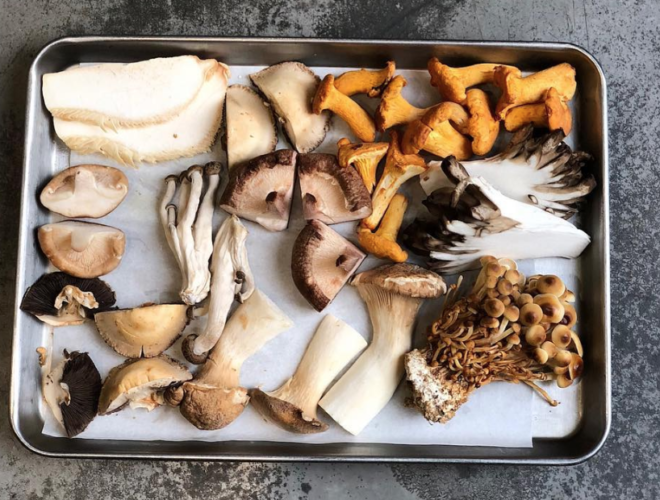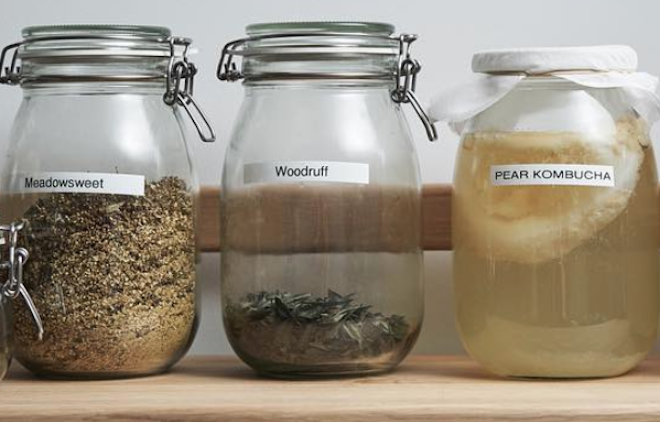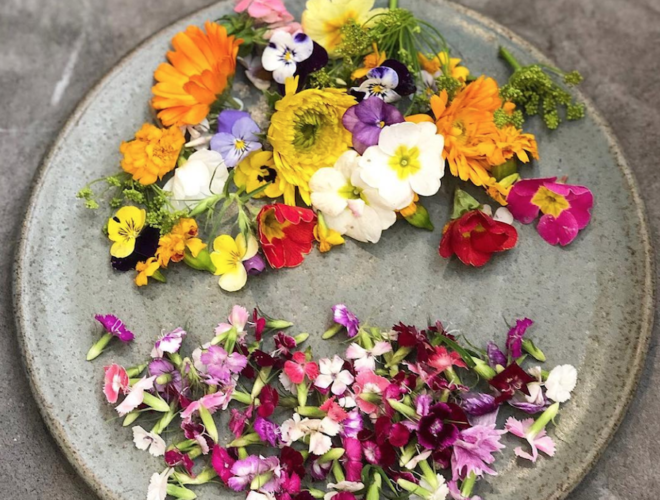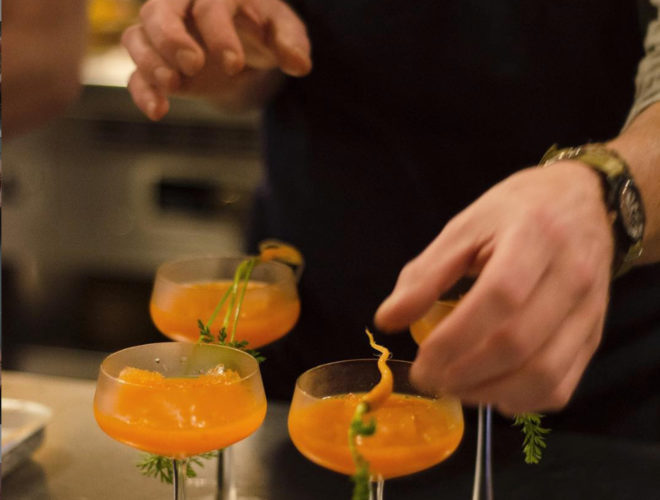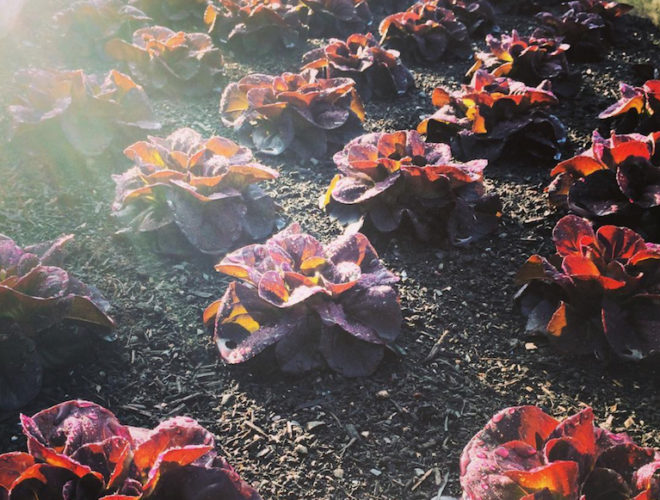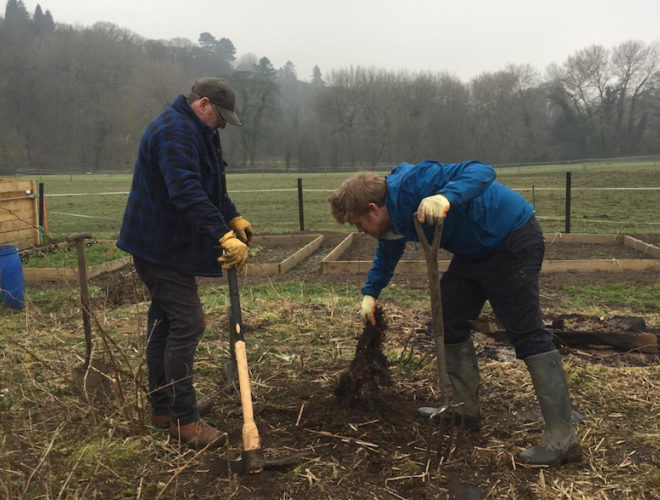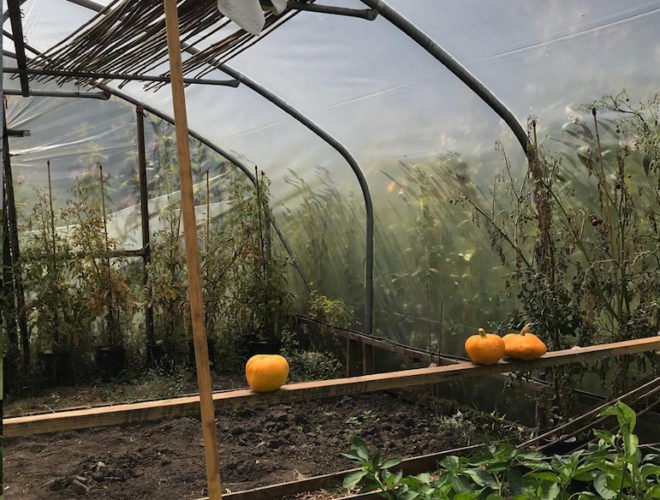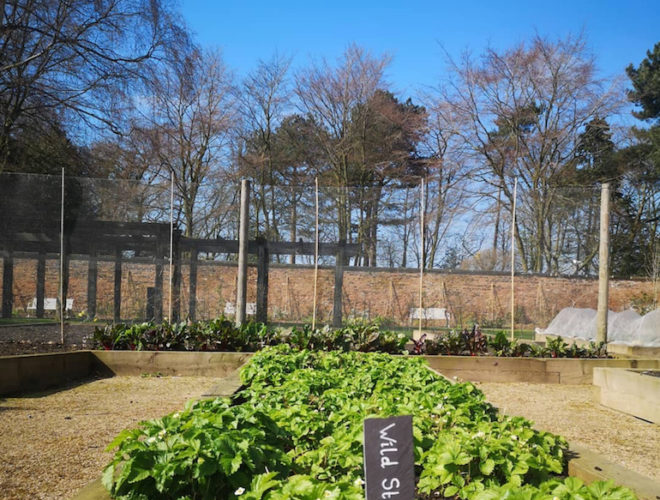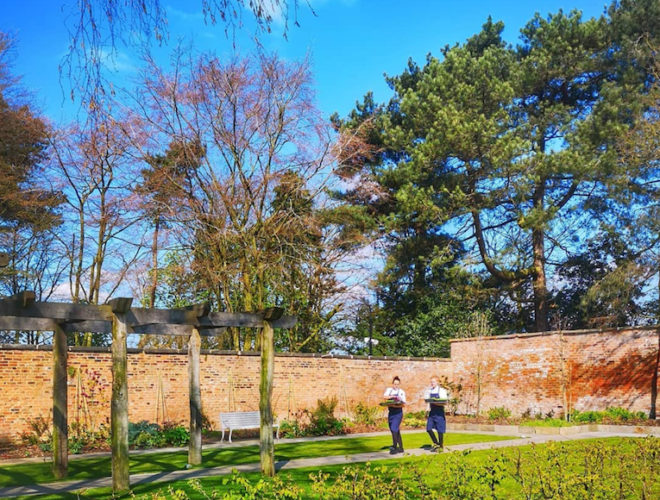Nowadays, we are so accustomed to a globalised food industry that we have almost completely lost touch with fresh, seasonal, locally grown produce. We consume bland, sour, fruit and veg that is picked before it is ripe, packed into plastic, and rolled into a cargo plane before zooming across the globe to our supermarkets.
But our desire to have everything we want, literally on a plate, is one of the many issues causing unsustainable damage to the planet.
So let’s talk about some restaurants that are so focused on local produce and seasonality that they have their own gardens and farms.
These champions prove that you don’t have to live off turnips alone in order to fill your plate with British seasonal produce all year round. Far from it, these are some of the best chefs in the country, and their menus showcase the exciting, varied and delicious stuff that can be grown right here in our gardens.
Bright orange begonias are infused to make Begonia Gin, rose petals are pickled, and vinegar is infused with spruce
L’Enclume, Cartmel.
Sustainability trailblazer Simon Rogan’s restaurants are all furnished with produce from ‘Our Farm’ in Cumbria, where gardeners, chefs and restaurant staff work together to cultivate exciting varieties of fruit, veg, herbs and flowers. If you’ve eaten at one of Rogan’s restaurants you’ll recognise the starring role that this stuff plays in his dishes.
You might find anise hyssop, lovage, several varieties of cucumber, magenta lettuce or purple kohlrabi on your plate. But it doesn’t stop there. Preservation is key to making use of the British seasons, so bright orange begonias are infused to make Begonia Gin, rose petals are pickled, and vinegar is infused with spruce.
Colourful flowers are tossed into salads or served as an edible cocktail garnish, and even wild mushrooms that appear serendipitously in the compost are weaved into the magic.
The farm team is dead set on sustainability in other ways too. They ‘divert all the food waste, card and paper from the bins of L’Enclume and Rogan and Co. and produce [their] own compost from which to grow more food’. The tips and pictures on their Instagram page are enlightening and inspiring.
Where the Light Gets In, Stockport.
At Stockport’s Where The Light Gets In, Sam Buckley and his team create an ever-changing menu depending on what the ‘weather patterns, sea conditions and the earth’s response’ allow – with as much as possible coming from their little farm.
You might expect things like heritage beets, borage, gooseberries or loganberries to make an appearance on your plate. A skinny carrot might even adorn your cocktail.
Always keen to minimise food waste, some ‘on the turn’ apples were recently turned into cider. Their ethos extends to the wine list, which only includes wines from this continent.
WTLGI have been campaigning for a community garden for Stockport and have also recently committed to a hosting a regular vegetarian night due to popular demand.
Northcote, Langho.
Northcote has had a Michelin star seemingly since the Jurassic age, and with the talented Lisa Goodwin Allen at the helm, they are pushing boundaries and exceeding expectations all the more.
Their biodynamic kitchen garden provides much of the inspiration for the plate and with over 90 varieties of fruit and veg to play with, you can expect great British ingredients like chunky, pink rhubarb to appear in unexpected manifestations.
By stepping away from industrialised farming, Northcote’s resident gardening expert Phil Dewhurst is able to put flavour, quality and nutritional content first.
With produce that meanders casually from farm to fork, not only are the sustainability boxes ticked, but the nutrient count is higher and your tastebuds are tickled.
You can go for a postprandial stroll and have a nosey at where your dinner came from
Moor Hall, Aughton
When head chefs at other top restaurants choose to come to your place on their day off, you know you’re doing something right.
The stunning listed building Moor Hall, which houses two restaurants: the eponymous Moor Hall and its sibling The Barn, is set in five acres of breathtaking gardens. These include a walled garden, formal gardens and a growing kitchen garden, which you can book a tour of, so you can go for a postprandial stroll and have a nosey at where your dinner came from.
Chef Mark Birchall works closely with the garden’s offerings wherever possible adding other carefully sourced produce to complement the harvest.
You might find flowers like chrysanthemum, woodruff or nasturtium lighting up your plate alongside more conventionally culinary veggies like turnips and heritage carrots.
The Forest Side, Cumbria
A destination restaurant set on a backdrop of breathtaking Cumbrian countryside. Head chef Kevin Tickle aims to shepherd this environment into his menus as much as possible.
He does this most artfully and with a Northern accent, so you might find cuckoo flower, filthy mushrooms, celeriac ‘that’s knocking on a bit’ or vintage birch sap in the descriptions of his tasting menus.
Locally sourced and foraged produce are essential ingredients in both food and cocktails, and their own one-acre kitchen garden provides them with around two-thirds of the fresh fruit and vegetables they need.
They have an impressive collection of flowering plants, herbs and nutrient-heavy, greenhouse-grown micro-greens to boot. With no chemical herbicides or fertilisers, everything is ethically farmed and all produce is picked fresh daily. It doesn’t get fresher, healthier or tastier than this.
The Chef’s Table, Chester.
This 30 seater restaurant in historic Chester houses a passionate team who are putting environmental concerns at the top of their list of priorities.
They take care to ensure that everything from their herbs to their mushrooms comes from a sustainable source. While they don’t strictly have their own kitchen garden at Chef’s Table, much of their product comes from very local small producers. One example, ’Growing at Field 28’ is an indoor ‘urban farm’ which grows pesticide-free, nutrient-high micro herbs.
They also ensure that any palm oil in their food is sourced from sustainable sources, a move that contributed to Chester becoming the first sustainable-only palm oil city in the world in 2019. With green goals like this, they deserve a place on our list.


